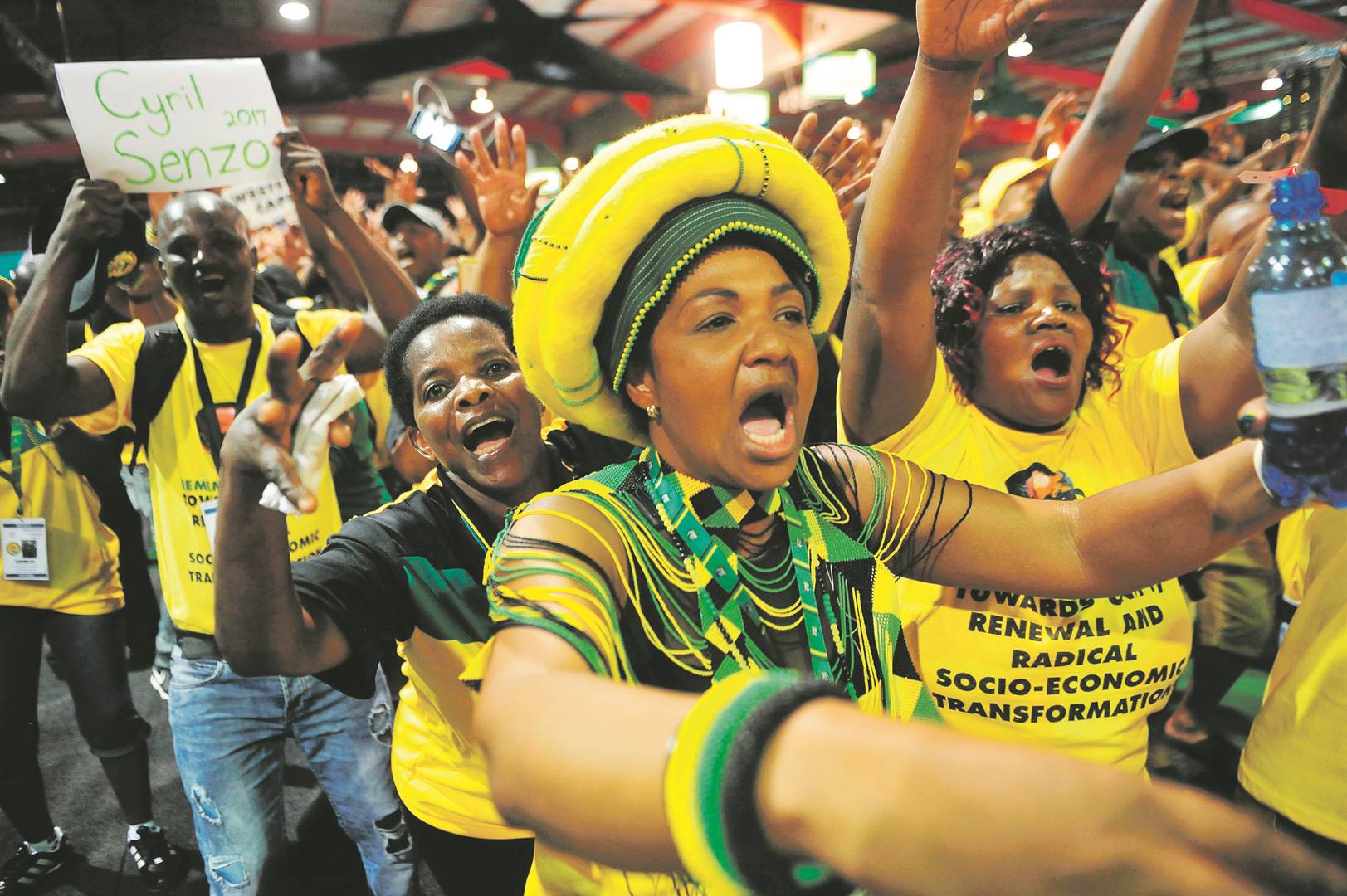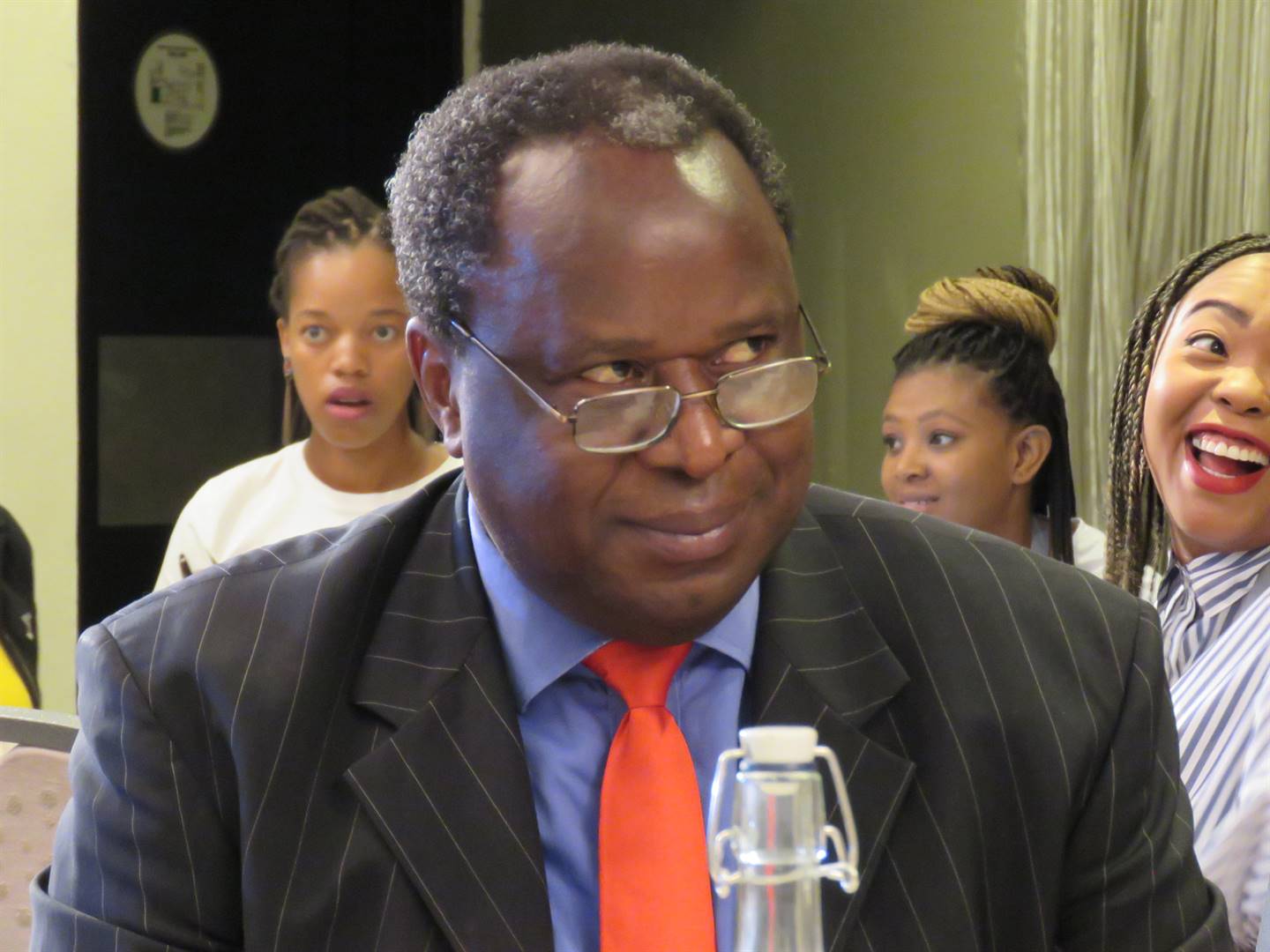
The bourgeoisie elite at the helm of the ANC, such as Tito Mboweni, is unlikely to implement even the most modest party resolutions
The ANC manifesto, informed by its election resolutions of 2017, placed economic transformation at the centre of the sixth administration.
The manifesto placed the programme of fast-tracking broad economic participation of previously marginalised, predominantly black people, as its singular goal in the next five years.
The manifesto, articulating ANC resolutions, said the ANC would work with vigour and determination to “end monopolies and the behaviour that stifles competition; establish a state mining company that will play a significant role in the industry; establish a state-owned pharmaceutical company as part of the ANC programme to promote an affordable and reliable supply of medication and localisation; expand ownership of the economy as one of the fundamental building blocks for transforming the economy to serve the people; and accelerate land reform”.
ANC resolutions are a product of its members, largely poor and black, the historically disadvantaged proletariat.
The influence of capital, the industrialists, the middle class and the entire bourgeoisie is limited to written submissions and the few members who have fashioned themselves as the bourgeoisie.
In that sense, it is truly a conference of the proletariat.
The reality in the world, however, far away from the conference, is very different.
The proletariat that is powerful at a conference, setting pace and policy, is powerless in the real world; the bourgeoisie rules.
Even the ANC power that should be the force of the proletariat is not enough to push back the combined power of the bourgeoisie class.
The reason for this, as Karl Marx said, is that “on the side of the bourgeoisie stand the aristocracy of finance, the industrial bourgeoisie, the middle class, the petty bourgeoisie, the lumpen proletariat organised as the mobile guard, the intellectual lights, the clergy, and even the rural population. On the side of the proletariat stands none but itself.”
DIVINE RIGHT TO LEAD
Then there is the reality that, even within the ANC, the bourgeoisie feels that it is has a divine right to lead.
As with other post revolutions, the bourgeoisie always feels that it is the one with the skill, the education, the experience and the international confidence to replace the bourgeoisie that had been removed from power.
Most revolutions, as Marx observed about the French revolution and others, are effectively a replacement of the bourgeoisie by another.
Former president Thabo Mbeki, the standard bearer of the ANC bourgeoisie, made this clear when he spoke about Jacob Zuma, whom many had mistakenly thought was the best hope for working class interests.
“How can we leave the future of the organisation to such people? The man has no capacity to do the things we say need to be done, no capacity whatsoever.”
It is also entirely possible that the bourgeoisie, as it has done throughout history, views the proletariat resolutions of ANC conferences as “utopian nonsense to which an end must be put”.
Finance Minister Tito Mboweni has very much treated ANC resolutions as utopian nonsense to which an end must be put.
Of course, since the 1991 ANC conference, militancy and radicalism have always been treated with suspicion by the bourgeoisie, castigated as political immaturity, which could result in like-leadership and like-policies in a world that required assimilation and reform, if not compromise.
The ANC resolutions as stated are in fact radical because they seek to upend an enduring culture of a small group of individuals, largely white, hoovering up most of the economy to the exclusion of the majority.
Even the less radical proposed changes, the inconsequential nationalisation of the SA Reserve Bank and the common sense use of prescribed assets for investments, are rejected and seen as typical utopian nonsense to which an end must be put.
What do we want to achieve by nationalising the Reserve Bank, Mboweni nonchalantly asks.
The idea that this opens a possibility for someone to be both a regulator and the regulated, by owning shares in both the Reserve Bank and possibly the commercial bank is lost to him.
Seven of the 15 board members of the Reserve Bank are chosen by private shareholders, who most likely are also owners of the commercial banks.
It’s a ridiculous situation which most countries have long abandoned.
This is effectively ceding the state into unelected private hands.
There is, however, a reason for Mboweni to behave like this and it has a lot to do with his economic orientation at the turn of the century and the dominant thinking of the time.
Part of the problem is that South Africa’s freedom in 1994 coincided with political and economic reforms globally, in which the role of government was getting minimised and the divinity of markets was sold as the end of history.
Markets were believed to be the wealth creators as long as the government did not stand in the way.
Former UK prime minister Margaret Thatcher began a rigorous process of privatising most government entities to deal with government debt and the operational inefficiencies of government-owned entities.
On the other side of the Atlantic, in the US, Ronald Reagan was championing a smaller government that did no more than protect citizens and collect the bare minimum taxes, removing all regulations and unleashing the creative powers of the private sector.
Reagan’s mantra was simple: “Government is not the solution to your problems. Government is the problem.”
He began to dismantle the problem and left everything in the hands of the markets.
The world that a free South Africa found was heavily shaped and influenced by these shifts, including by international trade and finance organisations.
This meant the ANC government was given political power at a time when political power was getting diminished globally and anyone who did not follow suit was getting left behind in global trade.
Every reform programme we did at the time, in education, in health, in communication, had to speak to global competitiveness and global standards.
Globalisation had no time for historical injustices and radical transformation.
If you did not meet global standards, your share of private investment would be diminished.
So, when the ANC took over, there was an avalanche of economic advice from various experts and academics, effectively asking the ANC to abandon its national democratic revolution rhetoric and let the markets lead.
This meant letting go of historical reforms that required the strong hand of government.
Read: ‘Our people love the ANC’, says Ramaphosa as he promises to renew SA
This era, in retrospect and hindsight, at least according to many economists, fooled a lot of people with its bubble growth and runaway wealth and, when it all came down in 2008, people knew exactly what had happened.
The state had abandoned its role as the regulator and overseer of life, rules, order and had been told that its presence in the markets would hinder success.
Wealth rose, taxes were redistributed, poverty was largely reduced.
On the other hand, more devastatingly, inequality became the defining feature of this era as executives, who produced nothing of real value, were taking 300 times higher salaries than their lowest-paid employees.
In South Africa this inequality was perpetuated by existing ownership and the structure of the economy, almost all in white hands and leaving very little for the majority.
Again, because of prevailing economic thinking at the time, the ANC chose the dominant trickle-down economics instead of what would be viewed as an autocratic, if not socialist, economic approach.
Unfortunately, the economy did not trickle down, the rich became richer, the worker became flatlined and the poor was absorbed by the welfare net, creating an unsustainable economy and one in which the rich could be arrogant and occasionally tell us they were the ones carrying the country with their taxes.
In dealing with inequality, and the ownership structures of the economy, as has been clearly evidenced by the refusal of private owners and their proxies to let go of their private ownership of the Reserve Bank, shows that the current owners of the economy, owners of finance, owners of property, will not give up without a fight, even though their wealth is unjustified and a product of colonial crusades and apartheid pillage.
As long as the business class continues to have its bourgeoisie at the helm of the ANC, and the same self-justifying reference points of its class, there is unlikely to be an implementation of even the most modest of ANC resolutions.
Again Marx tells us of similar circumstances in France where “every proletariat demand for the simplest bourgeois financial reform, for the most ordinary liberalism, for the most formal republicanism, for the most shallow democracy, is simultaneously castigated as ‘an attempt on society’ and stigmatised as ‘socialism’”.
What is to be done?
- Diko is a social commentator
 | ||||||||||||||||||||||||||
Get in touchCity Press | ||||||||||||||||||||||||||
| ||||||||||||||||||||||||||
| Rise above the clutter | Choose your news | City Press in your inbox | ||||||||||||||||||||||||||
| City Press is an agenda-setting South African news brand that publishes across platforms. Its flagship print edition is distributed on a Sunday. |




 Publications
Publications
 Partners
Partners









